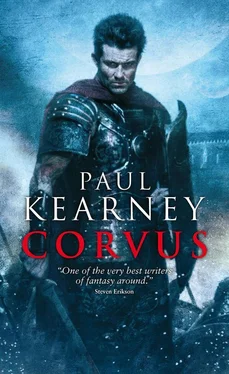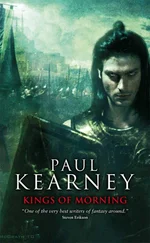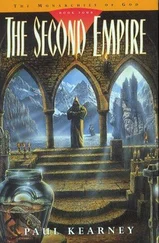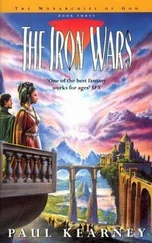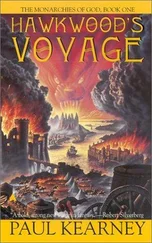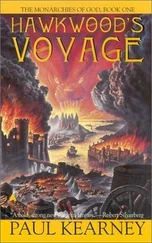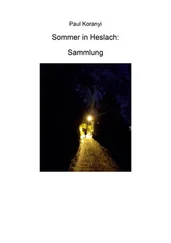Paul Kearney - Corvus
Здесь есть возможность читать онлайн «Paul Kearney - Corvus» весь текст электронной книги совершенно бесплатно (целиком полную версию без сокращений). В некоторых случаях можно слушать аудио, скачать через торрент в формате fb2 и присутствует краткое содержание. Жанр: Фэнтези, на английском языке. Описание произведения, (предисловие) а так же отзывы посетителей доступны на портале библиотеки ЛибКат.
- Название:Corvus
- Автор:
- Жанр:
- Год:неизвестен
- ISBN:нет данных
- Рейтинг книги:5 / 5. Голосов: 1
-
Избранное:Добавить в избранное
- Отзывы:
-
Ваша оценка:
- 100
- 1
- 2
- 3
- 4
- 5
Corvus: краткое содержание, описание и аннотация
Предлагаем к чтению аннотацию, описание, краткое содержание или предисловие (зависит от того, что написал сам автор книги «Corvus»). Если вы не нашли необходимую информацию о книге — напишите в комментариях, мы постараемся отыскать её.
Corvus — читать онлайн бесплатно полную книгу (весь текст) целиком
Ниже представлен текст книги, разбитый по страницам. Система сохранения места последней прочитанной страницы, позволяет с удобством читать онлайн бесплатно книгу «Corvus», без необходимости каждый раз заново искать на чём Вы остановились. Поставьте закладку, и сможете в любой момент перейти на страницу, на которой закончили чтение.
Интервал:
Закладка:
One of the corpses toppled over, as stiff and unlike a living man as an overstuffed sack of flour. Karnos smiled, grunting at the pain, but swallowing it down, as he had swallowed down the beatings he had received as a child. Even then, he had known his father loved him, but knew also that he’d had to lash out on occasion at the nearest thing to hand.
If it were not Karnos, it would be one of the starving strays that littered the city alleyways, and Karnos pitied them even more than himself. They were used and discarded by the slumdwellers who had spawned them, feral little beasts who could barely speak, whose sex was indeterminate, whose eyes held nothing but fear and greed. If they survived they would grow into whores and thieves and beggars, and beget the curse of their existence on another generation. Thus were the slums of Machran renewed.
Karnos began to breathe more easily. He was feeling the cold now, and a warm lassitude came creeping over his battered frame.
They think I have so many slaves because I love lording it over them; me, the boy from the Mithannon, making his own little kingdom. Kassander knows better.
I keep them slaves to protect them. No man or woman wearing my collar will ever be abused in Machran. They are safe with me. Polio knows that. He knows me better than anyone.
He wanted to shout for Polio now, to tell him that his bed was damp, that he needed an extra coverlet. He raised his hand to push back the wet covering that was stealing his thoughts away, and his hand settled on the cold wax-hard face of the dead man whose body lay upon his own. The jolt of that snapped him out of his reverie, and the pain came flooding in, clearing his head. He ground his jaw shut and pushed the chilled meat away from his face, found a leg loosened, and ploughed himself through the mud on his back.
He was freezing cold, but free, staring up at the invisible rain, the teeming dark. How far to Machran? It must be over a hundred pasangs.
Machran, the sun of his world. He loved his city more than he would ever love any wife. One could walk there upon stones that had been shaped in the dawn of his race’s existence. It was rumoured that below the circle of the Empirion were caverns in which the first of the Macht had lived, sealed chambers which housed the dust and dreams of millennia.
My city.
The rain was easing, and in the tattered dark of the sky he could see glimpses of the stars peering through the cloud as the wind picked up and began to harry them away. Phobos was long set, but the pink glow of Haukos could still just be made out, and to one side, Gaenion’s Pointer, showing the way north. He fixed it in his mind, and some almost unconscious part of him made his fist dig a hole in the mud pointing north.
I think my father taught me that. He lived his life in a half dozen narrow streets, and yet he knew about the stars – how is that?
Because even the poor can look up past their next meal. Even the drunkard pauses now and then to cast his face to the sky and hope, and wonder.
We are beaten, Karnos thought. He beat us fair and fully, outnumbered and in the muck of winter when his horses could not run.
I should have offered Rictus more. His men were in front of me today – or yesterday – his Dogsheads. Corvus did that on purpose. What a marvellous bastard he must be. I wish I knew him.
I hope Kassander got away.
And with that thought the rags of the present came back to him. The League he had spent years building was cast to the wind, and the flower of Machran had been slaughtered here, around him.
How many died here today?
He sat up, and the pain became something quite novel in its intensity. He had heard old campaigners say that the worse the wound, the less the pain. He hoped it was true.
Polio, I need a bath. Who knew that war would stink so bad?
Karnos of Machran stood up, a fat man in a gaudy cuirass, barefoot and slathered in mud and blood, a black arrow poking from his right shoulder. He was the only thing moving upon the flooded mere which had been a battlefield.
The Plain of Afteni, they will call it, he thought, for Afteni is not twenty pasangs away along the road. That is where they will be, those who are alive. That is where I must be, if I am to live. He began walking west.
Paul Kearney
Corvus
THIRTEEN
Phaestus – one-time Speaker of Hal Goshen, until Rictus had shown up at his gates – had always been a man who prided himself on his appearance. He liked the attention of women; his wife, Thandea, had been a noted beauty in her day and was still a handsome matron. More to the point, she was an amenable adornment to his life who kept his household running smoothly in conjunction with his steward, leaving Phaestus to consider the weightier things in life, be they the running of a great city or the pursuit of other men’s wives.
That was all in the past.
To become ostrakr was a blackened distinction within the Macht world. It meant a man had no city, no citizenship, and hence no redress for wrongs done to him.
He might own taenons of good land, but the moment he was ostrakr, that land became anyone’s to own. He might try to defend it with the strength of his own arm, but what is one man to do when three or four – or fifty – walk onto his farm and declare their intention to take it from him? He dies fighting, or he leaves it all behind.
The same applies to his house, his slaves, all his possessions. And if some stranger takes a fancy to his wife or his daughter, then it is his own spear, and that alone, which will preserve their honour. There is no recourse to the courts, to the assembly, or even to the assistance of friends and neighbours. He is ostrakr – he no longer exists.
Mercenaries forsook their cities when they took up the red cloak, though there were far fewer of them around now than there had been – so many had died with the Ten Thousand that a kind of tradition had been lost, and even now the true, contracted fighting man who fought by the code of his centon was something of a rarity. Such men were ostrakr also, but they at least had the brotherhood of their fellows to fall back on. They exchanged one polity for another.
A man who had nothing to fill up the framework of his world was naked in the dark, and must subsist with the tireless wariness of the fox until he somehow found a way to become a citizen again, to come in from that darkness.
That is what Phaestus had meant to do.
He stood now wrapped in bear-furs which he had bartered from a group of drunk goatherder men over the campfire of the night before. They had been good men, rough and ready as all were who lived up in the highlands with no city to call their own. Up here it was still the world of the clan and the tribe, a more ancient place. But still, men belonged to something. They looked after those of their own blood.
It was a white, frozen world this high in the hills, and the Gosthere Range was a marching line of blinding-bright giants all along the brim of the horizon, the sky as blue and clear as a robin’s egg above them. Here, winter had already come into its own, and the drifts were building deep, the dark pinewoods locked down in frozen suspension, and the rivers narrowed to fast flowing black streams between broadening banks of solid ice, the very rocks bearded with foot-long icicles.
The goatherder men had been bringing their flocks and their families down into the valleys for the winter, and were glad to trade: furs and dried meat for wine and pig-iron ingots. They had haggled hard over the wine and then shared it out liberally afterwards, for such was their nature.
These were the original strawheads of the high country, from whom Phaestus’s own people had come. The dark-skinned lowlanders might sneer at them, but they at least did not burn down cities and enslave populations. All they wanted was grazing for their animals, a place to pitch their dome-shaped tents of weathered hide, and room to roam. They were a picture, perhaps, of how the Macht had lived in the far and misty past. Perhaps.
Читать дальшеИнтервал:
Закладка:
Похожие книги на «Corvus»
Представляем Вашему вниманию похожие книги на «Corvus» списком для выбора. Мы отобрали схожую по названию и смыслу литературу в надежде предоставить читателям больше вариантов отыскать новые, интересные, ещё непрочитанные произведения.
Обсуждение, отзывы о книге «Corvus» и просто собственные мнения читателей. Оставьте ваши комментарии, напишите, что Вы думаете о произведении, его смысле или главных героях. Укажите что конкретно понравилось, а что нет, и почему Вы так считаете.
